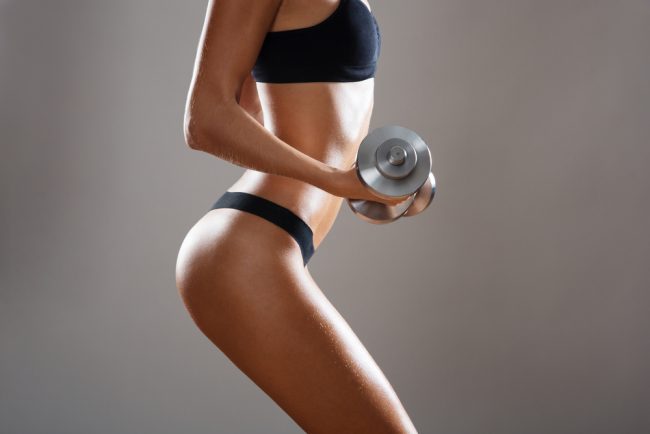CONTENTS

Protein is one of the main nutrients you will hear about as a newcomer to bodybuilding. You may know the basics of why your body needs it — for energy and to help your body to recover from training. But did you know that when you are undertaking a regimen of weight training, you need more of it on a daily basis, or that there are different types of protein that your body needs at different times?
It can be confusing, and if you don’t know enough about it, you won’t see the best results you possibly can from your time in the gym.
Here is an explanation of why you need protein and how you should be eating for maximum effect, as well as the different types of supplements available and when you should be taking them to ensure that you never go into a deficiency and waste your hard work.
What is protein and why is it vital?
Protein is one of the three essential macronutrients your bodies needs, along with fats and carbohydrates. When your body digests protein, it is broken down into amino acids, which are vital for muscle and tissue repair, and also play an essential role in many other functions:
. An energy source, especially when your body has no carbohydrates available
. Boosts your metabolism, as it takes more energy for your body to digest it
. Maintains normal growth hormone levels
. Maintains nitrogen balance, essential for muscle repair and growth
. Provides fuel for chemical reactions in your body to take place
. Supports your immune system
. Regulates insulin levels in your blood
. Regulates your bodies fluid levels
The role of protein in your body’s recovery
There are two main ways in which protein helps your body to recover from strenuous training:
1) Ensures glycogen levels are topped up as quickly as possible
2) Repairs the microscopic tears in your muscles caused by lifting weights
Your body needs nitrogen to be able to start repairing itself immediately after your workout. Protein ensures that enough nitrogen is transported to your damaged muscles for them to instantly go into recovery mode after your workout.
Complete vs. Incomplete Protein
Adults require 22 types of amino acids to function; 13 of these are synthesized naturally within the body, and are known as non-essential. The other nine must be derived from food and are known as essential amino acids.
Complete Animal and Dairy Protein Sources
These contain all of the amino acids you need in sufficient quantities; most are animal based, although there are a few examples of complete plant sources:
. Seafood
. Meat
. Milk
. Eggs
. Yogurt
Complete Plant Protein Sources
. Peas
. Quinoa
. Hemp seeds
. Buckwheat
Incomplete Protein Sources

These foods are examples of incomplete protein sources and don’t contain all the essential amino acids you need. Incomplete protein sources should not be considered inferior in any way — both have a place in your diet:
. Vegetables
. Grains
. Seeds and nuts
Combining Protein Sources
Combining both types of protein in a meal is ideal for giving your body all the amino acids it needs. Below are some great examples of combined “complementary” proteins:
. Peanut butter on whole wheat bread
. Whole grain pita bread with hummus
. Almond and spinach salad
. Black beans and rice
How much protein do you need?
In the US, the recommended daily allowance (RDA) of protein is approximately 0.36 grams per pound of body weight (or 0.8 grams of protein per kilo of bodyweight). However, anyone undertaking a heavy program of training requires double that amount. Therefore, for an individual weighing 200 pounds the RDA would be:
. 72 gram of protein per day if sedentary
. 144 grams per day on a weight-training program
Supplements

If you are on a high-protein diet, it can mean you spend a lot of time prepping nutritious meals. Today’s busy lifestyles may mean that you simply may not have the time to do all this extra work in addition to your schedule at the gym. You also need to be ingesting certain types of protein at certain times and this is where supplements can be convenient and much more cost-effective than buying chicken, beef and seafood every day. There are hundreds of supplements available, so use the guide below to choose the right types for you.
Whey vs. Casein
Whey is the most popular form of protein supplement. It is a by-product of the cheese-making process and available as a convenient powder. It’s a fast-acting source of protein, ideal pre- and post-workout when your muscles need to be fed quickly, and to stimulate as much growth as possible. When choosing a whey powder supplement, look out for isolate which is the purest form. As with all supplements, in terms of quality you get what you pay for. Protein is far too vital to skimp on, so choose the best quality that you can afford. Casein digests slowly, so use this throughout the day to ensure your body has a continual supply. You will start losing your hard work as soon as you go into a deficiency.
Groom+Style has prepared a review of the top 5 best whey proteins on the market.
Milk Protein
This is the protein from milk with the fat and carbohydrates removed. It’s approximately 20 percent casein and 80 percent whey, so digests slowly. A mixed powder containing mostly whey is fine just before you hit the gym. Have a look on the label; ingredients are listed in the order of how much is in it, from most to least.
Plant Protein
Protein can be found in many plants and is especially beneficial to vegan and vegetarian weightlifters. Brown rice is an excellent source of protein, as are peas, quinoa and buckwheat.
Egg White Protein
This is a high-quality protein source, suitable for those who are intolerant to lactose, and it was popular before whey was discovered. In terms of absorption speed, it is faster than casein but slower than whey. A mixed powder containing egg white, whey and casein is a great choice for keeping you going throughout the day.
Beef Protein
Available in bars and powder form, this protein is fast-acting and ideal when it’s time for your workout. It makes an ideal substitute for whey if you have an allergy to milk.
Soy Protein
There is a great deal of misinformation surrounding this protein. A popular theory at one time was that soy protein increased estrogen and decreased testosterone in males; this has been proved to be untrue. It is an excellent protein for helping muscle recovery after a heavy workout, and it also increases the release of natural growth hormone in your body, as well as nitric oxide levels.
Protein in Other Forms
There are many convenient forms of protein available, meaning you can always make sure you have the nutrients you need.
Protein Bars
These are good to include in moderation, although you shouldn’t rely on them pre- or post-workout. The protein in them digests slowly, so won’t benefit you at those times. Low-carb protein bars are popular for anyone on a restricted diet. There are also protein bars that include fats and carbohydrates, turning them into healthy equivalents a small meal when you need one on the move.
Ready-to-Drink Shakes
These are in a can like a soft drink, and usually taste better straight out of the fridge. Again they are meant for convenience and usually contain milk protein, so don’t make them your first choice when it’s time for the gym. Some protein shakes contain simple carbohydrates, making them an ideal choice both before and after your workout.
Meal Replacement Supplements
As the name suggests, these contain all the nutrients you require from a meal in a single drink. These are not intended to replace your meals on a regular basis. They are ideal to ensure you don’t go into a nutrient deficiency on the odd occasion, such as if you have to work late one night.
Weight gainers
This is a protein supplement powder with added fats and carbohydrates for those who find it difficult to bulk up or for anyone that needs to add weight quickly. They can either be used between meals to increase your calorie intake, or as a meal replacement.
Timing of supplements
For maximum benefit, your body needs different forms of protein at different times of the day. Supplements, alongside whole foods, are an incredibly useful way of ensuring your body has a steady supply at the right time and doesn’t go into a deficiency.
When you wake up:
At this point, as you haven’t eaten for eight hours, you need to feed your body quickly and ensure your body has a positive nitrogen balance. You also need to feed your body until your next mealtime, so choose a powder blend of both whey and casein, with the addition of a natural food source such as cheese or eggs.
Between regular meals:
All protein sources between your meals should be a slowly digested type to ensure your nitrogen levels remain steady. Again, casein is an excellent choice; egg white protein will work as well.
Before your workout:
Pre-workout, your body needs a slow digesting form of protein to ensure it doesn’t run low. If you go into a deficiency at this point your body is going to take longer to start repairing itself after your workout. A powder containing casein and carbohydrates is ideal to ensure your glycogen stores are replenished as quickly as possible and to promote a faster recovery.
Post-workout
Your body now needs a mixture of slow- and fast-acting proteins to ensure your glycogen stores are replenished. A casein and whey bend is ideal at this point.
At bedtime
You need to give your body a supply of nitrogen for the next seven to eight hours. Casein and egg white protein is ideal at this point to keep your muscles fed throughout the night.
Understanding the extra ingredients in your supplements
You will notice that some protein powders have added ingredients. These are some common ones:
Carbohydrates
Fast-acting carbohydrates ensure that protein is shuttled to your muscles quickly when they need it the most. Maltodextrin and dextrose are both ideal for this.
Enzymes
These are essential to assist your body when digesting extra protein. Enzymes such as proteases not only aid your digestion, they also make sure protein uptake is maximized and none is wasted.
Amino Acids
In addition to normal amino acids, you may also hear about “BCCA’s” or Branched Chain Amino Acids. These may be an added ingredient, along with glutamine, to promote faster muscle recovery.
Creatine
Creatine is a much debated supplement and has been the subject of many studies. There is strong evidence to suggest it increases muscle growth when taken before and after a workout. If you are taking creatine as a separate supplement, take note of how much is added into your protein powder and reduce the dose accordingly.
Protein as part of a balanced diet

Knowing about the many different types of protein will help you make informed choices about supplements and how they can aid you. It is important to remember when following a high-protein diet that you do not neglect your intake of other vital macronutrients as well. Remember, protein also needs fast-acting carbohydrates to maximize uptake in your body. You also need to ensure that you eat plenty of fiber too, also a vital part of any balanced diet. Finally, if you have any health problems, especially kidney problems, talk to your physician before undertaking a high-protein diet.


